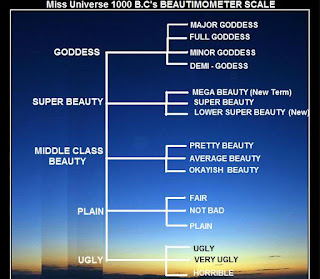 I feel like disabled people are classified differently than others. I guess it's because society automatically puts a sign on every disabled person demanding the pity of others. Many times I have felt sympathy for them, but I don't think sympathy is something they want. Also, the video we watched made me ponder why I've never really payed much attention as to why mannequins all look the same, but it's probably because that is the norm nowadays, using perfect body sculptures to show off pieces of clothing. However after reading Mair's essay I fully agree that people with disabilities are being deprived "of even the urge toward independence" (Mairs 14). Especially in the media where stereotypes portray disabled people as weak, and needing constant support. As stated by Mairs, this mindset leads people to experience "a subtle kind of self-alienation not unlike that experienced by other minorities". This is the way of thinking that Mairs, along with many others including myself, want destroyed. Disable people are just as capable as we are, and probably even more.
I feel like disabled people are classified differently than others. I guess it's because society automatically puts a sign on every disabled person demanding the pity of others. Many times I have felt sympathy for them, but I don't think sympathy is something they want. Also, the video we watched made me ponder why I've never really payed much attention as to why mannequins all look the same, but it's probably because that is the norm nowadays, using perfect body sculptures to show off pieces of clothing. However after reading Mair's essay I fully agree that people with disabilities are being deprived "of even the urge toward independence" (Mairs 14). Especially in the media where stereotypes portray disabled people as weak, and needing constant support. As stated by Mairs, this mindset leads people to experience "a subtle kind of self-alienation not unlike that experienced by other minorities". This is the way of thinking that Mairs, along with many others including myself, want destroyed. Disable people are just as capable as we are, and probably even more.To go along with current events, disable people and immigrants are are going through similar treatment due to the situation we are in right now. Because of President Trump's #MuslimBan that executive ordered just a couple days ago, many Americans including myself are tremendously ashamed. To think that all Muslims belong to a terrorist organization is outright absurd, and goes against the constitution and American values. Think about the countless refugees trying to get into America. People don't just leave home just because they want to, but rather it is usually a dangerous situation in which they want to flee. In classifying people differently, we lose the very belief we stand by. And what do we trade this value away for? Some measly counterfeit illusion of safety.
#NoBanNoWall
What is the wall even gonna do for us anyway? Most illegal immigrants aren't even from Mexico, more people are leaving the US for Mexico than the other way around.












